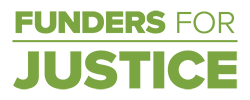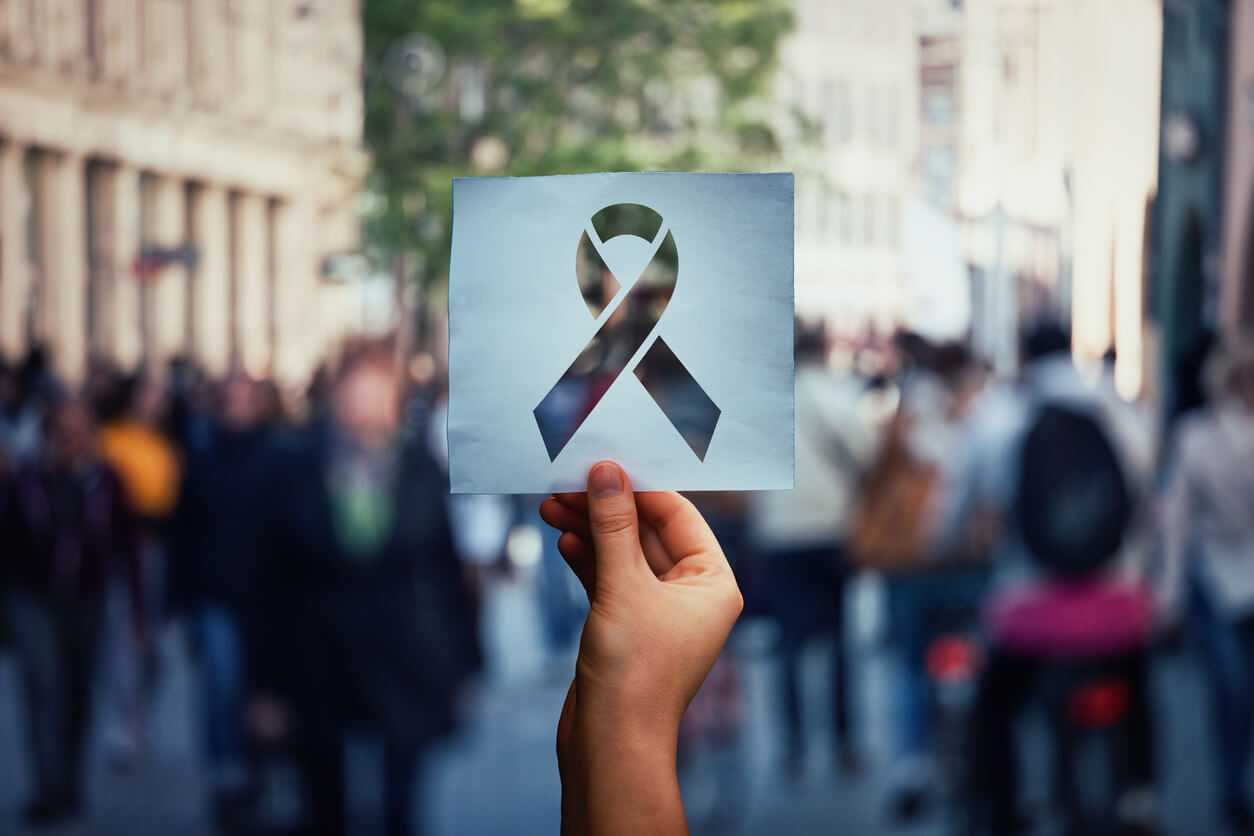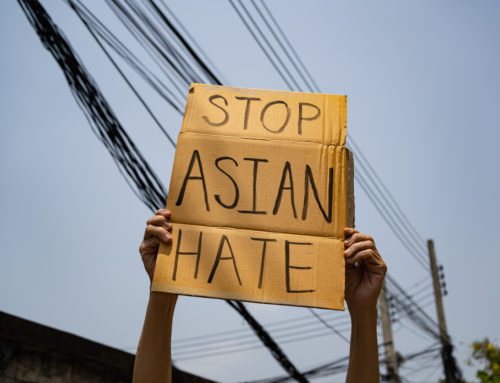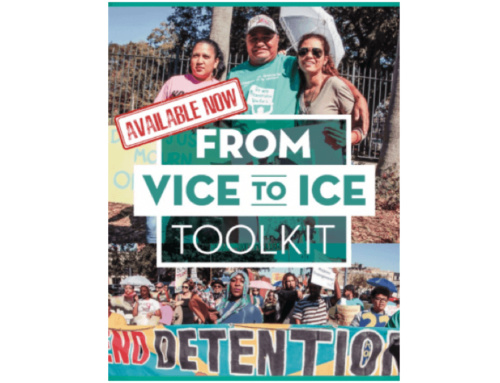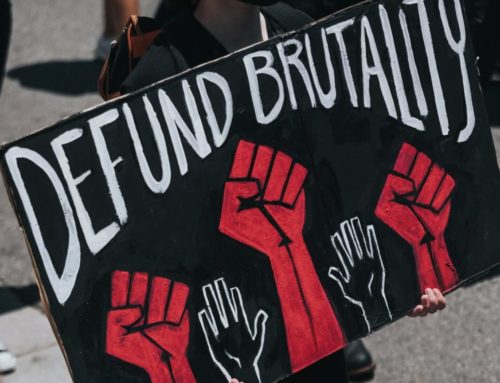HIV is not a crime! (except in 32 states and 72 countries)
By John Barnes, Executive Director, Funders Concerned About AIDS (FCAA)
Even many AIDS advocates and people living with HIV are surprised to learn that HIV IS a crime in 32 US states and 72 countries around the world, with new laws being enacted every year. Since these laws have begun to appear, at the beginning of the epidemic, over 600 prosecutions of people with HIV, more than half of those in the United States. In fact, just this week the Utah House of Representatives passed HB 369, which, if enacted, will make sexual contact by an HIV+ person without disclosure of status a first-degree felony rape.
Many laws attempt to criminalize HIV transmission without regard to whether transmission has occurred, or was even possible. In the U.S., for example, decades-long prison sentences have been issued to HIV+ people for biting or spitting on police officers, although these acts bear no risk of HIV transmission. Additionally, HIV+ people who are on treatment and have undetectable viral loads are not infectious to their partners; however, these facts are not considered mitigating circumstances in prosecuting and convicting people with HIV. Unconfirmed accusations from spurned lovers that their partners did not disclose their HIV status have led to 30-year prison sentences for the accused parties. Many of the laws used to convict people with HIV of crimes also come with a lifelong label of “sex offender” which adds immeasurable additional stigma. HIV+ status also adds to the seriousness of many alleged crimes, taking misdemeanors to felonies and adding years to prison sentences. Ironically, the only defense against many of these laws is not knowing your HIV status, which provides a huge disincentive to the public health priority of getting people at risk tested.
Unfortunately, the problem of HIV criminalization does not receive much attention. Most people with HIV are unaware of their level of vulnerability to criminal charges, and, due to a lack of funding to address these challenges, combatting HIV criminalization is not high on many advocates agendas. According to data from Funders Concerned About AIDS, just over $3M was spent to combat HIV criminalization globally in 2015 (down from $4.5M in 2014). As the largest private funder of HIV de-criminalization, the Elton John AIDS Foundation takes a comprehensive approach to addressing HIV criminalization: supporting those at increased risk of being victims of punitive policing and improper arrests with direct services, education and legal services; while also supporting advocacy to improve laws, policies, and rights-based practices to transform police and the justice system into forces for health rather than against health. A key theme in recent HIV-related philanthropy addressing criminalization includes advocacy and capacity building for impacted populations. Efforts by such funders as EJAF, M.A.C AIDS Fund, Ford Foundation, AIDS United, and the Third Wave Fund include: leadership retreats for HIV+ black youth in the Midwest to address HIV/AIDS criminalization and stigma; new partnerships to grow regional advocacy and support for young, black gay men and transgender people of color around key issues of poverty, criminalization and access to healthcare; research and implementation funding to examine disproportionate impact of HIV in the U.S. South with a focus on criminalization and incarceration of marginalized communities.
In an article by Catherine Hanssens of the Center for HIV Law & Policy in New York City, a leading advocate on legal issues involving HIV, Hanssens asserts “Understanding these laws and what drives them requires a brief look at the history not just of HIV-specific criminal laws, but also, more broadly, of infectious disease control in the United States.” Hanssens then goes on to put HIV criminalization in historic context by pointing out that “over the centuries and to the present day there have been several reliable common denominators to the policies and laws adopted in response to diseases such as tuberculosis, syphilis, and more recently, HIV: oversized fear, stereotyping of those affected by the disease, and assignment of blame to already-marginalized members of society, e.g., the poor, sex workers, and new immigrants.
<iframe width=”560″ height=”315″ src=”https://www.youtube.com/embed/B433fMElc_c” frameborder=”0″ allowfullscreen></iframe>
<p><a href=“https://www.youtube.com/watch?v=B433fMElc_c”>HIV IS NOT A CRIME Documentary</a> from <a href=“http://www.seroproject.com/hiv-is-not-a-crime/“> the Sero Project. </a></p>
Another important resource is the Sero Project, from whose documentary “HIV is not a Crime”, I plagiarized the title for this blog. The 8-minute video shares the lived experiences of people who’ve been victims of HIV criminalization laws.
There is some good news: vital resources provided by private funders are enabling some victories, such as the recently overturned conviction of Michael Johnson, an HIV+ college student, by the Missouri Appeals Court. In 2015, Johnson had been sentenced to 60 years in prison for the charges of “recklessly infecting another with HIV” and “recklessly risking infection of another with HIV.” His conviction helped to mobilize the Anti-Criminalization movement among HIV activists, and this victory, though not final, will undoubtedly boost interest in this work.
More resources will be necessary to continue to advance these efforts. Funders Concerned About AIDS is committed to raising visibility around issues of HIV criminalization as well as resources and leadership to combat it. FCAA calls on all who seek to advance justice, to play a role in turning the tide against HIV criminalization. To learn more about our efforts, or to get involved in our work, check out our website at www.fcaaids.org or email me at john@fcaaids.org.
About FCAA
Founded in 1987, FCAA is the leading voice on philanthropic resources allocated to the global AIDS epidemic. We provide funders with the data necessary to make informed decisions on HIV/AIDS funding. In addition, we galvanize the philanthropic sector to work collaboratively, transparently, and urgently to drive robust, focused, funding for: 1) evidence-based interventions in the treatment and prevention of HIV infection; 2) research, and the exploration of new methods to hasten the end of AIDS; and 3) investments that address social inequities, health disparities, and human rights abuses that fuel the spread the epidemic.
About John Barnes
John Barnes joined FCAA as executive director in November 2009. John began HIV work in 1987, by developing and implementing a statewide HIV/AIDS case management program for the Division of Public Health. He went on to run several local and national AIDS service organizations before moving on to corporate grantmaking. John served on the board of directors of FCAA from 2005-2009. John also serves on the board of trustees of Broadway Cares/Equity Fights AIDS.
